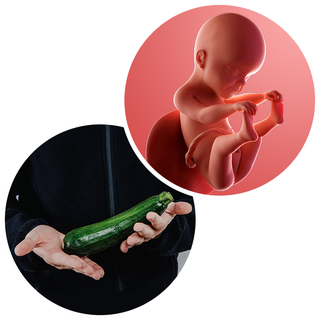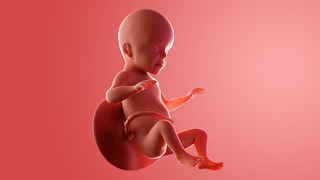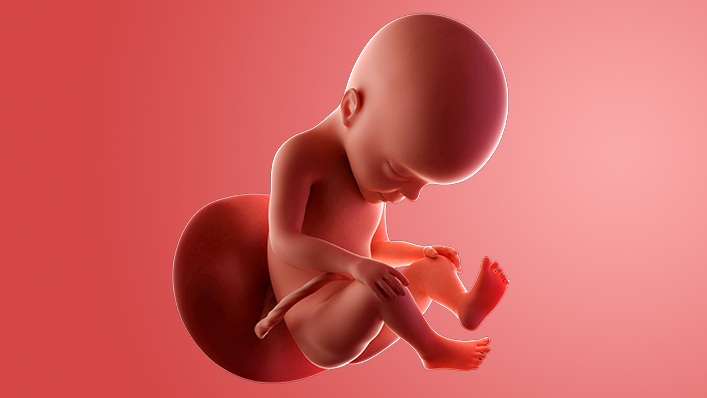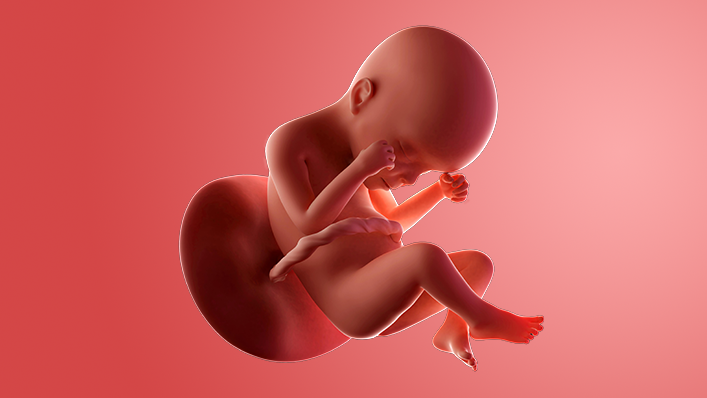- Week 13
- Week 14
- Week 15
- Week 16
- Week 17
- Week 18
- Week 19
- Week 20
- Week 21
- Week 22
- Week 23
- Week 24
- Week 25
- Week 26
- Week 27
Week 25
Welcome to week 25! You'll need to tell your employers now, if you have not already, so that you can get maternity pay and benefits.
If your partner plans to take paternity leave, they will need to tell their employer too. Did you know that female partners are also entitled to paternity leave?
What's happening in my body?
You could be starting to get a bit puffy and swollen in your face, hands and feet.
This is probably completely harmless and caused by water retention – but do mention it to your midwife or doctor. They will want to check your blood pressure, just in case it's a sign of a dangerous condition called pre-eclampsia.
Pre-eclampsia can happen in the 2nd half of pregnancy or after the baby is born.
If you get any other signs, such as splitting headaches, vision problems, or pain just below the ribs, then call your doctor, midwife or NHS 111.
Whooping cough vaccination
Have you had the whooping cough vaccine? It's usually offered to pregnant women at around week 20 but you can have it from week 16 to week 32.
Whooping cough is on the rise – but you can protect your baby from this dangerous condition by having a vaccination. If you have not had it yet, speak to your midwife or a GP.
Read more about whooping cough vaccination in pregnancy on NHS.UK.
Feeling gassy after eating
Are you burping a lot? It's very common around now. You may also be feeling more full than usual.
After eating or drinking you could get:
- burning in your chest
- bloating
- nausea
This is probably indigestion and heartburn. Digestive problems are caused by your growing baby taking over some of the space where your stomach used to be.
It can help to:
- eat smaller meals, so you do not feel too full afterwards
- eat healthily and avoid rich, spicy and fatty foods
- cut back on drinks with caffeine (like tea, coffee and energy drinks)
- sit up straight when you eat
- give up alcohol and cigarettes
If you're pregnant and single
Around 1 in 4 families are single-parent families. You may be worried about money or how you'll cope. It's important that you talk to people about how you feel and ask for help if you need it.
You can also talk to your doctor or midwife about local support groups. Gingerbread is an organisation for single-parent families that can advise you on everything from benefits to childcare.
2nd trimester pregnancy symptoms (at 25 weeks)
This week, your signs of pregnancy could include:
- tiredness and sleeping problems (week 19 has information about feeling tired)
- stretch marks (read about stretch marks on week 17's page)
- swollen and bleeding gums (week 13 has information about gum health during pregnancy)
- pains on the side of your baby bump, caused by your expanding womb ("round ligament pains")
- piles (read about piles on week 22's page)
- headaches
- backache
- nosebleeds
- indigestion and heartburn (week 25 talks about digestive problems)
- bloating and constipation (read about bloating on week 16's page)
- leg cramps (week 20 explains how to deal with cramp)
- feeling hot
- dizziness
- swollen hands and feet
- urine infections
- vaginal infections (see week 15 for vaginal health)
- darkened skin on your face or brown patches – this is known as chloasma or the "mask of pregnancy"
- greasier, spotty skin
- thicker and shinier hair
You may also experience symptoms from earlier weeks, such as:
- mood swings (week 8's page has information on mood swings)
- morning sickness (read about dealing with morning sickness on week 6's page)
- weird pregnancy cravings (read about pregnancy cravings on week 5's page)
- a heightened sense of smell
- sore or leaky breasts (read about breast pain on week 14's page) - a white milky pregnancy discharge from your vagina and light spotting (seek medical advice for any bleeding)
What does my baby look like?
Your baby, or foetus, is around 34.6cm long from head to heel. That's approximately the size of a courgette.
This is an active time for your baby. A loud noise could make your baby jump and kick, which should not hurt but might take you by surprise. You might even feel the occasional hiccup.
Your baby is now peeing into the amniotic fluid. By now, most of the liquid around your baby is urine, which provides cushioning and helps keep the temperature snug and stable.

Action stations
Start thinking a bit more about what you'd ideally like to happen when your baby's born. What kind of pain relief would you like? Who do you want to have with you?
You can download an NHS birth plan template which will help you think through some of the big issues.
This week you could also…
More in week-by-week

Week 26
As you approach the 3rd trimester, you might be feeling more tired, and a bit more clumsy and uncoordinated. It's important to stay active but your body's changing all the time, so be patient with yourself.
More in week-by-week guide to pregnancy


